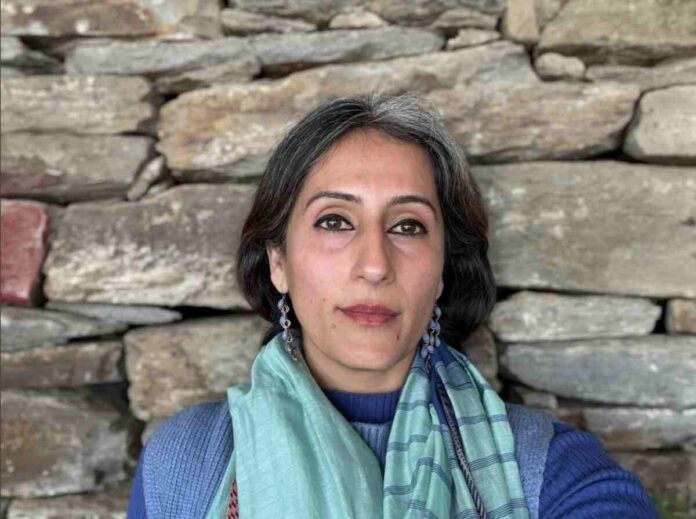- What draws you to the medium of poetry, and how do you believe it offers a distinctive way to communicate emotions and ideas?
I grew up in an environment where verbal communication and the exchange of thoughts and ideas were limited. As a result, I kept most of my thoughts within me. It wasn’t until my early MBA years that I turned to writing—expressing what I was feeling inside.
Writing became a way to give shape to my invisible, intangible thoughts, translating them into words on paper. In a way, paper became the second person in my conversation. Seeing my thoughts laid out in front of me allowed me to understand them better. Writing, then, became my medium for communicating with myself.
- Can you share the inspiration behind the theme of your poems, and how it influenced the tone and structure of it?
For me, life has been my true inspiration—it fuels everything I write. My poetry carries a reflective tone, much like looking back on time, incidents, and fleeting moments. It’s a way of investigating the self within those experiences, seeking a deeper understanding of who I am.
- Poetry often invites readers to interpret and connect on a personal level. How do you navigate the balance between conveying your intended meaning and leaving room for individual interpretation?
In all honesty, I never write with others in mind—how they will feel reading it has never been a consideration. In fact, I never even intended to bring my work to the public. Like I said, my writing has always been an internal dialogue.
I have always been a quiet person, someone who doesn’t share much or speak often. Pen and paper have been my closest confidants—along with colors and canvases. These are the spaces where I lay myself bare, where I can truly see and understand myself.
I’m not someone with a vast vocabulary; I don’t dress up my emotions with fancy words. I write exactly as the thoughts come to me, in the simplest way possible. Because life, at its core, is simple—we just tend to complicate it. Some of the works that have resonated with me the most were also written in the simplest, most unembellished way. And I believe that’s what we are all seeking in this world right now—simpler, more honest ways to connect.
- Can you describe your approach to crafting the musicality of your language, and how it contributes to the overall experience for readers?
I don’t consciously craft musicality in my poems. My focus has always been on expressing emotions as they come, in their raw and simplest form. If a rhythm emerges, it’s purely organic, shaped by the flow of my thoughts rather than intentional structure. For me, poetry isn’t about melody—it’s about truth.
- Many poets draw inspiration from their own experiences. How does your personal journey and background influence the themes and imagery in your poetry
My poetry is deeply rooted in my personal journey. It’s a reflection of my inner dialogue, shaped by life’s experiences, moments of introspection, and the need to make sense of it all. I don’t set out to create imagery—it naturally emerges from my emotions and the way I process the world around me.
- In your work, how do you use poetry as a means of commentary or reflection on the world around you?
My poetry isn’t structured as direct commentary, but rather as reflection—often in the form of short, sharp statements, almost like aphorisms. I express my thoughts in a distilled way, capturing emotions and observations in just a line or two. For example: (“ Patriarchy is not a man; it’s a mindset.” Or “ The state and the society are the two sides of the same coin, each reflecting the values of the other.”)
- Readers may be curious about your writing rituals. Can you share any specific routines or practices you find helpful in cultivating your creativity and honing your craft as a poet?
I don’t have a set ritual—I write whenever something comes to me, whether on paper or typed into my phone notes. Lately, I’ve been trying to make myself sit down and write at times, working through a page or two. But with the mind constantly distracted, it’s tough to find the time and space to just sit and pour myself out.
It’s been a while since I’ve written poetry freely. These days, I’m busy filming a documentary project, which means most of my writing is focused on narration. It’s a different form, requiring me to revisit and refine my words repeatedly—unlike poetry, which I write instinctively, without filters. But at its core, my process remains the same: I write what comes to me, as it comes, letting it be as raw and unfiltered as possible.
Get your copy on amazon today and experience the power of poetic introspection!



